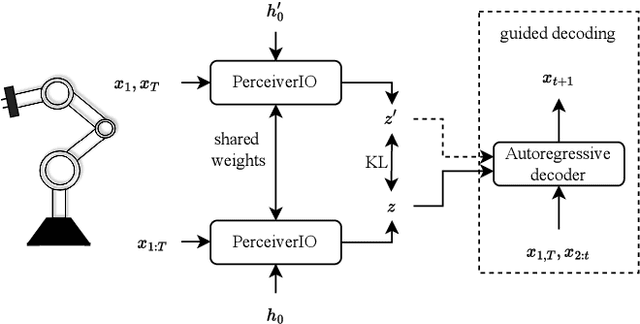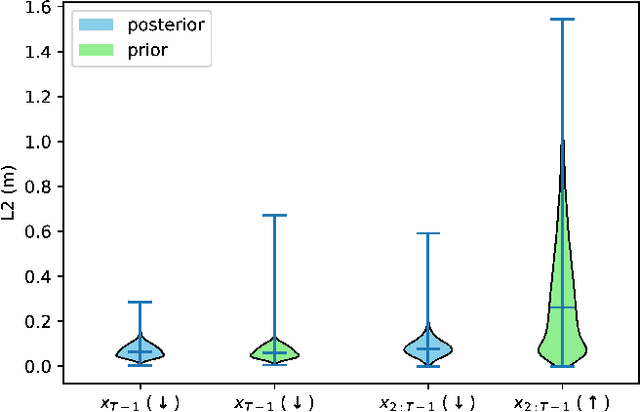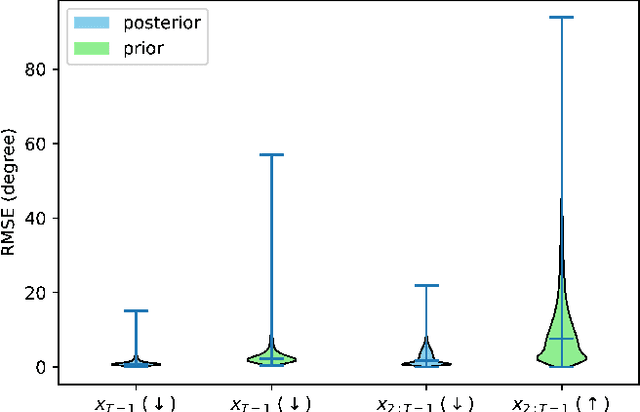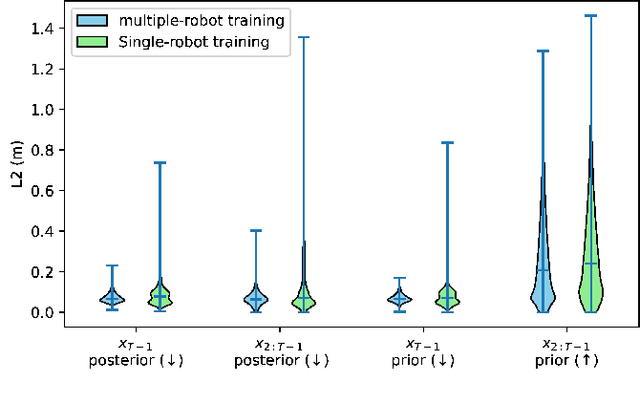Guided Decoding for Robot Motion Generation and Adaption
Paper and Code
Mar 22, 2024



We address motion generation for high-DoF robot arms in complex settings with obstacles, via points, etc. A significant advancement in this domain is achieved by integrating Learning from Demonstration (LfD) into the motion generation process. This integration facilitates rapid adaptation to new tasks and optimizes the utilization of accumulated expertise by allowing robots to learn and generalize from demonstrated trajectories. We train a transformer architecture on a large dataset of simulated trajectories. This architecture, based on a conditional variational autoencoder transformer, learns essential motion generation skills and adapts these to meet auxiliary tasks and constraints. Our auto-regressive approach enables real-time integration of feedback from the physical system, enhancing the adaptability and efficiency of motion generation. We show that our model can generate motion from initial and target points, but also that it can adapt trajectories in navigating complex tasks, including obstacle avoidance, via points, and meeting velocity and acceleration constraints, across platforms.
 Add to Chrome
Add to Chrome Add to Firefox
Add to Firefox Add to Edge
Add to Edge